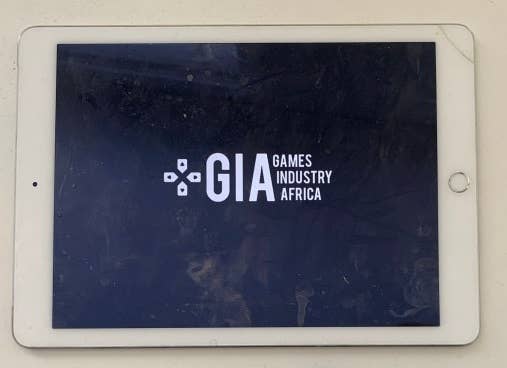2020 African Games Industry Trends
Games Industry Africa's Vic Bassey forecasts seven key storylines for the continent's developing market in the year ahead
A version of this column originally appeared in Games Industry Africa, a site created to chart the development of the African games industry and spotlight its many talented creators.
Perusing games industry end of year reports (such as SuperData's 2019 Year In Review) and predictions for the coming year have always been a past time I ravenously consume. However, despite the intriguing blend of numbers and bold forecasts trotted out, there has always been a sense of mild irritation that whilst most claim to have a global perspective, it almost always excludes insights from the African continent. Pretty frustrating right?
Well, fret no more. I decided to peer into the 2020 crystal ball to see what the year holds in store for us all. That is provided we avoid any major impactful global events such as the threat of an impending global fracas or our descent into a climate-induced extinction level event.

Disclaimer: Before we jump right into it, it's worth acknowledging the discrepancy between the varying sub regions in Africa. South Africa and to some extent North Africa are more developed regions with sub-saharan Africa lagging behind, but making up ground at breakneck speed.
1. Education is Key
Africa is the only region in the world where the youth population is increasing. By 2050 Africa's young population, i.e., those aged between 0 and 24 years old, will increase by nearly 50 percent. Africa will have the largest number of young people. Africa's youth are key to the continent's future when it comes to mobile and gaming as a whole, which will be further boosted any significant investment in the education space.
Whilst established companies such as Andela and Gebeya have forged a reputation built on developing the next generation of software developers across the continent, a need for a more focused gaming curriculum is the next logical extension of that strategy. Expect that to be further explored and possibly addressed in the coming twelve months.
The training of technical and design competency talent notwithstanding, educating the next generation of business savvy managers and executives to lead local studios and publishers should also emerge as formal education takes hold.
2. Spaces of Play
With the talent pool likely to increase, a space to gather and increase the likelihood of knowledge sharing becomes paramount.
The continent has witnessed a steady growth in the number of tech incubators and hubs in the recent years. Today, we have over 100 technological hubs spread across the continent, harbouring thousands of innovative minds crafting new technological applications, platforms and ideas that are impactful to the continent.
The tech hubs include MEST in Ghana, ActivSpaces in Cameroon, iHub and Nailab in Kenya, Co-Creation Hub in Nigeria, BongoHive in Zambia, IceAddis in Ethiopia, among others. These hubs are stimulating the rise of digitally-savvy young people who are every bit as talented and hungry as workers in any other place. However, expect more gaming centric spaces such as the Nairobi Game Development Center to pop up across the region.
3. Body of Strength
Despite the presence of international branches of IGDA in the continent, their reach and level of activity has diminished. This might be as a result of the fragmented nature of the gaming eco-system which has limited their involvement to South Africa.
With developers across the continent increasingly searching for ways to share and co-exist together, a body designed to unite and champion the merits of the industry and continent as a whole will be formed. This group will comprise industry members from the five main regions of the continent -- North, South, East, West and Central -- and will be a powerful advocate for the sprouting creators in need of guidance and support.
4. Rewarding Excellence
With the formation of an industry body, it seems proper that a continentally recognized award built on integrity and designed to celebrate the works of local talent should follow in tow.
5. Retail on the Rise
Steam, App store, Google Play, Steam, GOG and a multitude of options exist as viable options for developers looking for platforms to peddle their wares. However, there appears to be a need to cater to the growing number of local gamers craving games with a distinctly local flavour.
That could lead to the rise of local digital retail outlets. The likes of Bonako Games Arena and Masseka Game Studio are already exploring such options, but they aren't the only ones.
Developers possess the talent, but struggle to commercialise their products. African developers still face a number of significant challenges in selling their games. They lack a central storefront that prioritizes and appreciates the perspective of African creators and players. Volatility in local currency valuation can make it difficult for players to find reliably affordable offerings on large international storefronts.
The widely varying maturity of various developments scenes throughout Africa is another challenge. For example, there currently exists a single game developer in both Ethiopia and Guinea. Both self taught and with relatively thriving enterprises. However, with little competition and a singular vision, each developer's perception of quality and success can vary greatly. This in turn can impede growth and their success beyond their borders.
6. Diverse Perspectives
While this particular point isn't specific to 2020, it has been an ongoing trend that will continue through the year. As the industry matures, so does the need to shine the spotlight on various voices and perspectives within the industry. Variety is the spice of life. It's also the seasoning needed to ensure the industry remains exciting and unpredictable. Initiatives such as Prosearium helmed by Sithe Ncube provide a platform for aspiring and established female developers to step forward.
7. Investment Spike
The region and the industry specifically has struggled to pull in investment. However, that has changed with a flurry of tech VCs exploring the potential of the ecosystem. With the fires of industry ablaze, expect the attentions of VCs and investors to be further peaked and investments in the gaming space to increase. Investors willing to support the industry would be best placed to do so in either one of the following verticals:
- Studios
- Publishers
- Esports teams
- Infrastructure companies (such as hardware and software options like game engines and retail platforms)
In truth, with the region such a hotbed of activity and on the cusp of its fourth industrial revolutions, this list could have been inexhaustible. Esports continues on its positive trajectory with numerous platforms such as PlayArena now available.
Whilst streaming and XR verticals exist, traction will stagnate unless a combination of supportive government regulation and dependable infrastructure is available and accessible. Despite the challenges, there has never been a better time to be immersed in the African games industry. Games Industry Africa looks forward to supporting its growth in 2020.
Vic Bassey is the editor of Games Industry Africa. He also currently works for Raw Fury and has previously held positions with Might and Delight AB and Paradox Interactive, among others.








